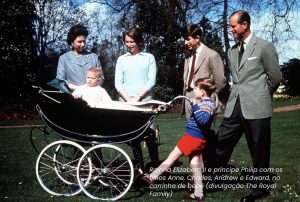London – Queen Elizabeth II, whose funeral took place this Monday (19) in Windsor. A quiet and soulful crowd filled the streets of London after the last day of Elizabeth’s memorial service.
Unprecedented media coverage, broadcasting every event since September 8, combining medieval air, religious and military elements in a sequence of events, has made death a kind of collective purification.
In recent days, the press spoke to experts to explain what had happened and why people were crying for someone they didn’t know.
There is no single reason. Commemorating deceased relatives, being part of a historical moment, connecting with “something bigger” that creates a sense of belonging, are among the reasons given religiousness and a sense of family for the figure who has always fostered faith in God.
Also Read | How the family was and remains a vital element in linking the monarchy with the people; see pictures
But in a society where media technologies bring together distant people, there is a perception that Queen Elizabeth is “one of the family”.
As for her father King George VI, her grandfather King George V, her great-grandfather King Edward VII, and her great-great-grandmother Queen Victoria, Her Majesty’s Queen’s coffin was carried in a Procession to Westminster Abbey on the State Arms Carriage. pic.twitter.com/2Vl58ITLGp
— The Royal Family (@TheRoyalFamily) 19 September 2022
This is what you see on the streets of London especially in the last two days and this Monday.
Today is a national holiday and unlike what usually happens on holidays, almost all commerce in the city center is closed.
But street vendors offer flowers and souvenirs, some of which are quite homemade.
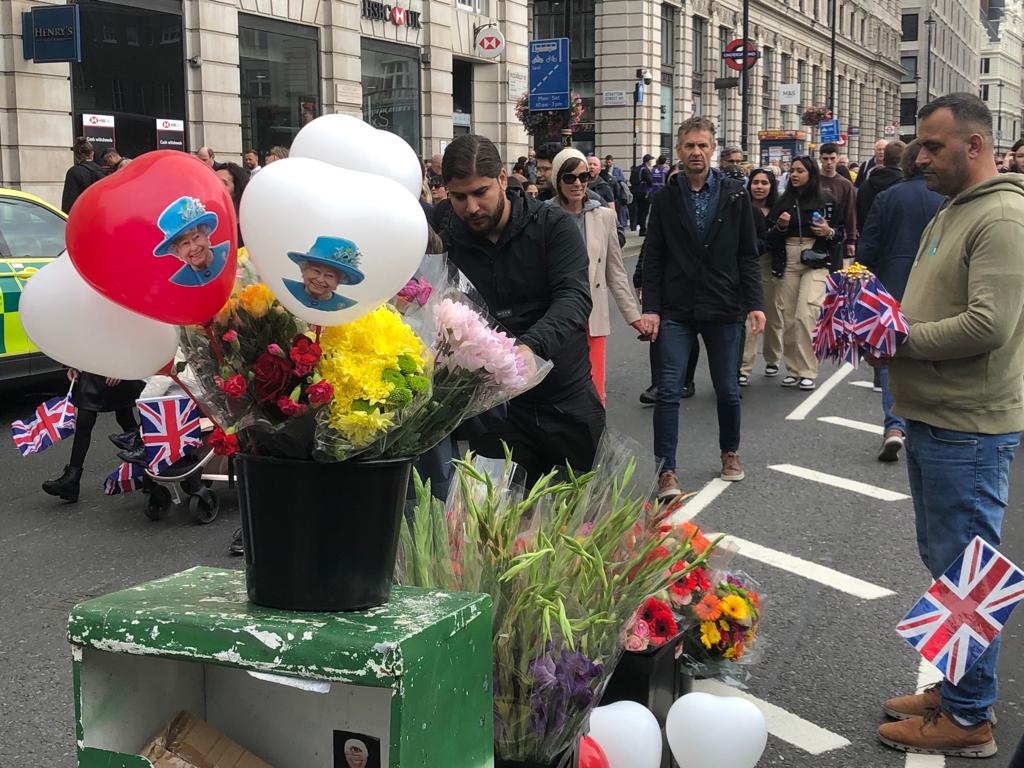
Many, including the elderly and families with young children, spent the chilly night near autumn camped out to watch Queen Elizabeth’s coffin pass before her funeral in Windsor.
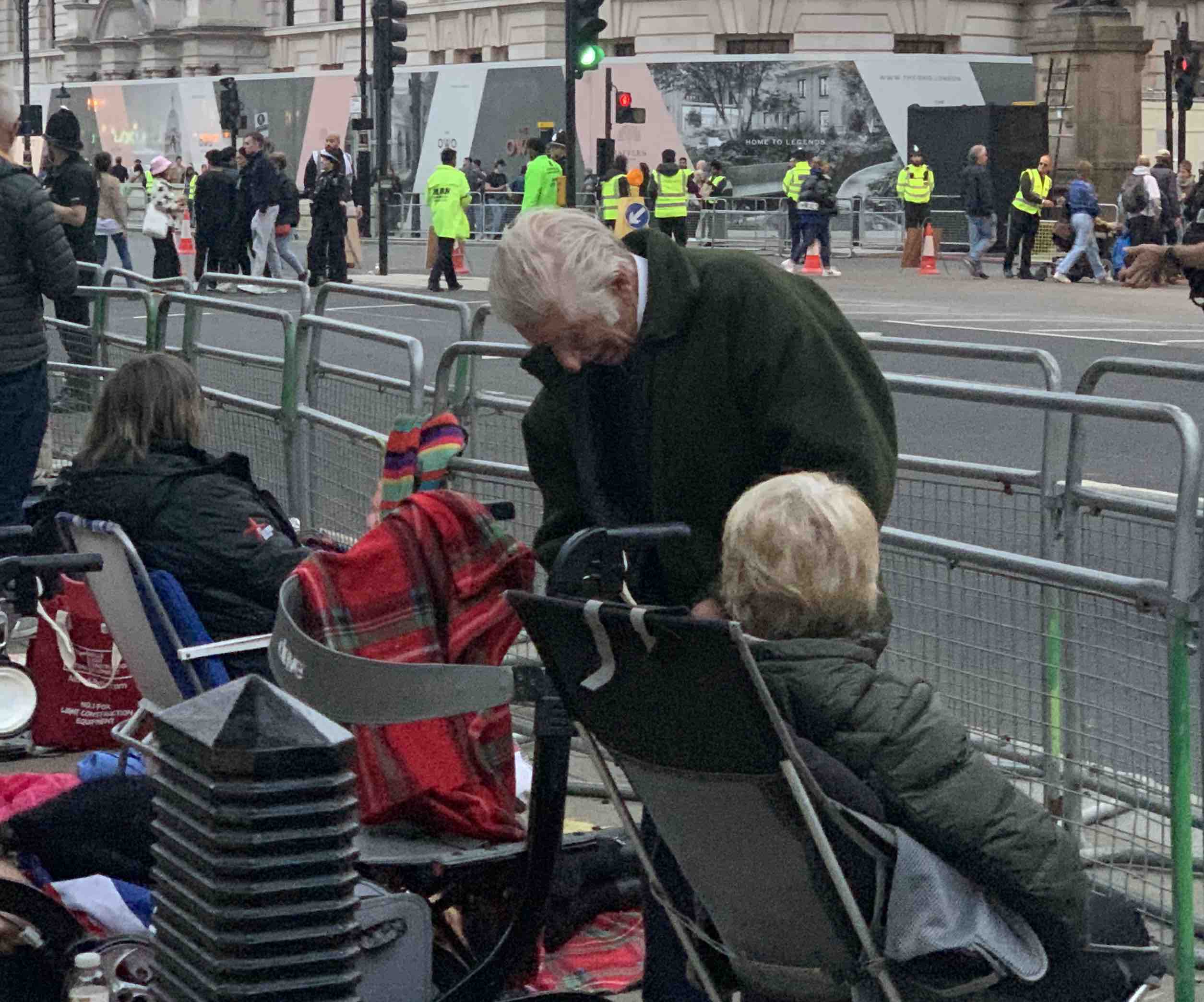
Most people wear black clothing or symbols with flags.
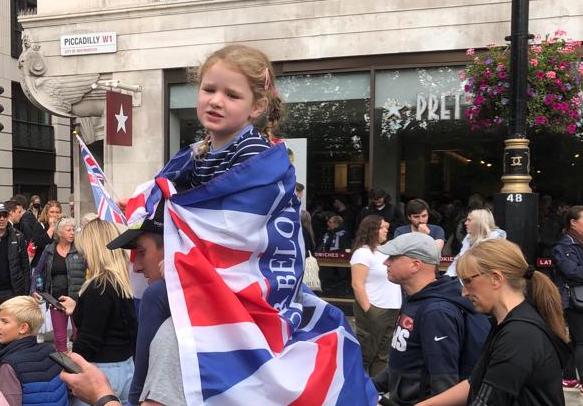
A few walked steadily and quietly to find a place. The girl chose a princess outfit for this occasion.
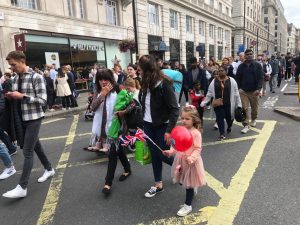
Children, the elderly and people of all ages, not typical of traditional monarchists, took to the streets on Monday.

Since the burial at Westminster Abbey began, thousands have watched on big screens across the city, in cinemas that have opened their doors to the public, and on the sidewalks of streets where the queen’s coffin passes as the final procession.
The public was almost completely silent on The Mall, which provides access to Buckingham Palace.
The sound system broadcasts the sound of the funeral in the Abbey. Later, the voice was the voice of the passing group.
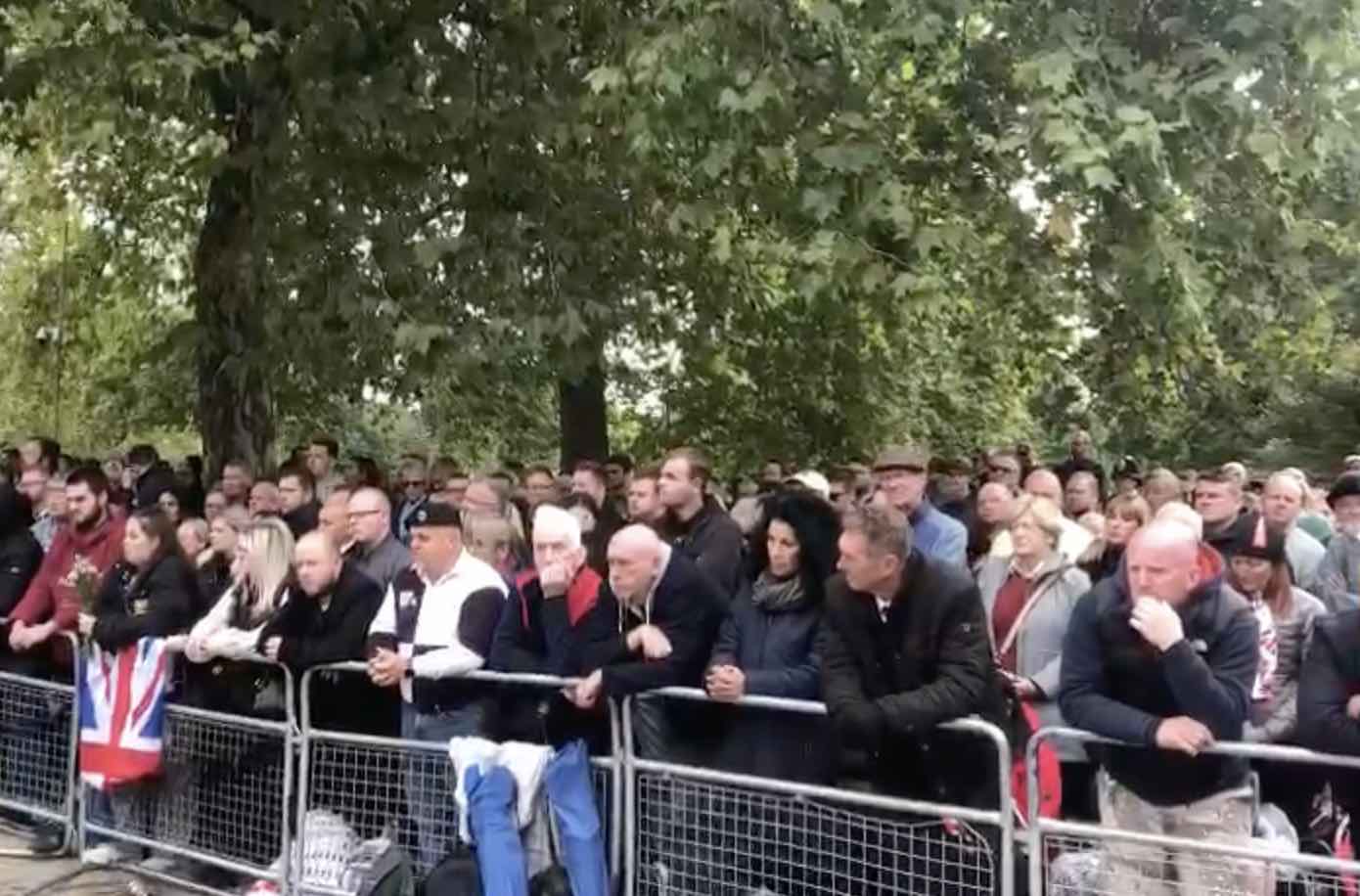
Just before the coffin crossed Mall Avenue, soldiers of the Queen’s Guard took their places with machine guns in their hands.

Mounted guards patrol closely around the funeral procession parade.
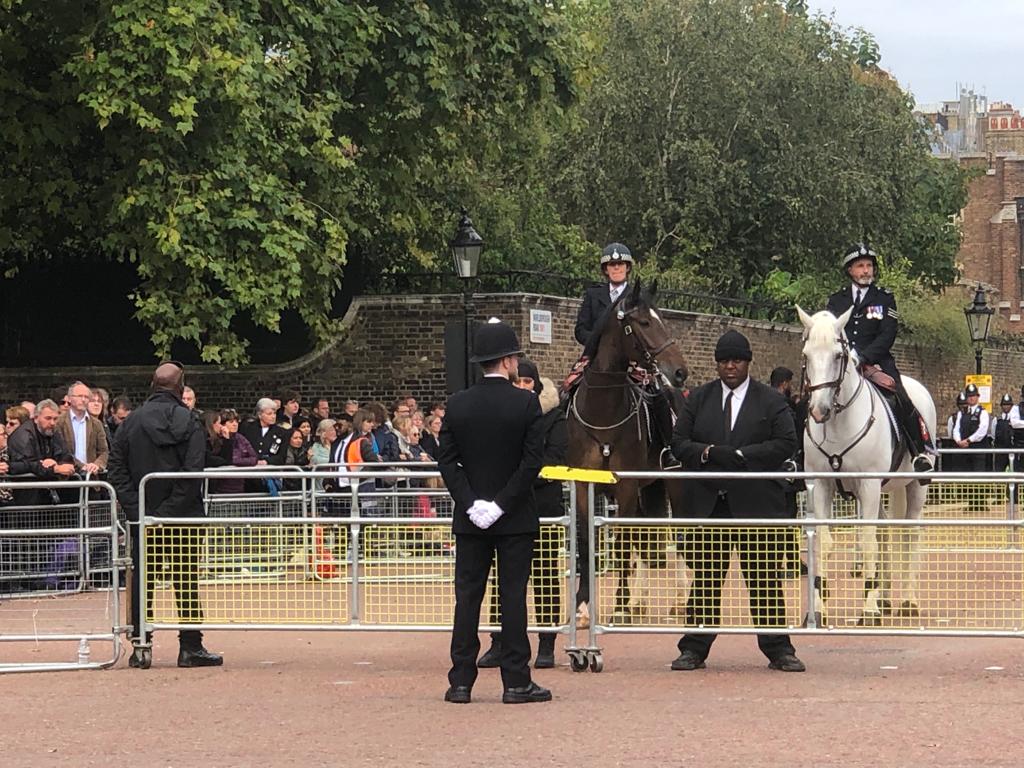
Even in front of the coffin, the Royal Guard stood in silence while the police kept their eyes on the public.

The journey between the Palace of Westminster and Westminster Abbey was televised with the emotional scene of the family behind the coffin, including the two great-grandchildren of Prince William and Kate’s sons, George and Charlotte.
The National Anthem, Bless the Queen, was sung, and the moment of his exit from the monastery’s coffin was applauded by the people in the streets.
The sound of the Big Ben clock was heard amid the tension of the military band and the rhythmic steps of the procession before Queen Elizabeth’s funeral.
The passage of the coffin was followed in almost complete silence, and almost everyone recorded the moment with their cell phones.

Some brought flowers, but no one tried to throw them over the pass. The audience applauded as the procession passed.
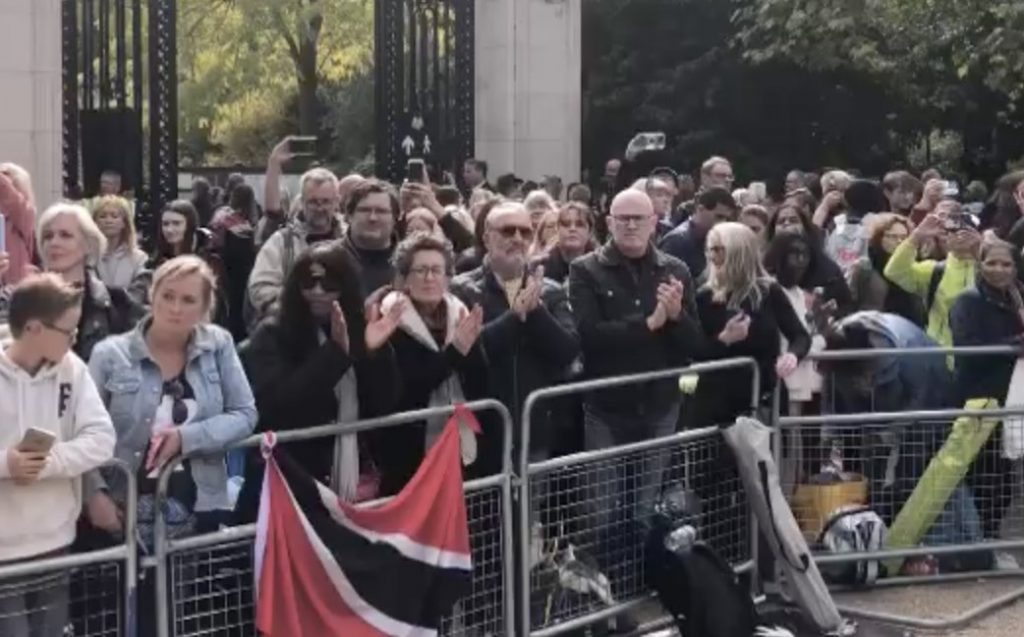
Part of Brazil among the flags.
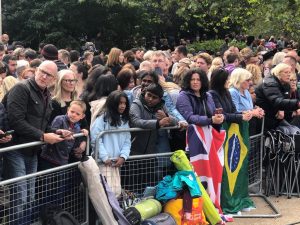
At exactly 13:37 local time, the Royal Salute was given at Wellington Arch before the bells of Westminster Abbey rang and the coffin marking the end of the ceremony.
The coffin was inscribed by Queen Elizabeth II, attended by heads of state from all over the world. He was placed in the carriage that would take him to Windsor, where Elizabeth’s funeral will take place today.
In the parade, during Queen Elizabeth’s farewell scene in London, a scene that few will forget, silence gave way to applause, and flowers were thrown along the way.

Even after the procession had passed, many of those who had camped to bid farewell to Queen Elizabeth remained in place while they ate lunch or simply contemplated the empty street, but were still patrolled by vigilant police.
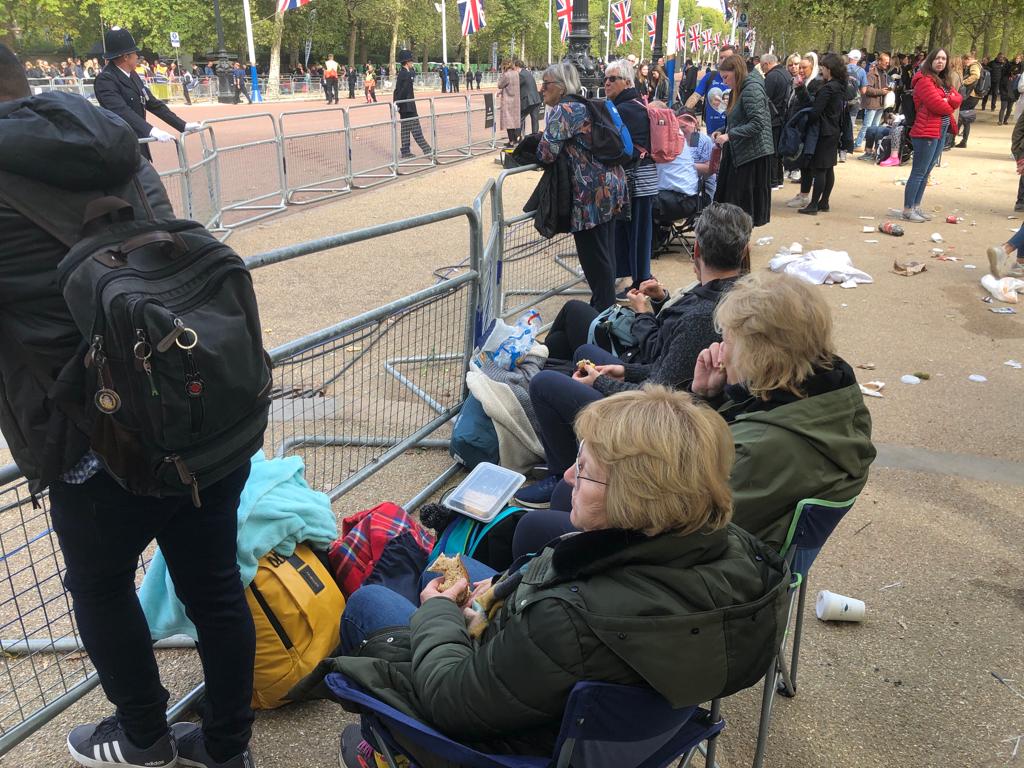
Others stayed in the garden of Green Park, making impromptu picnics.
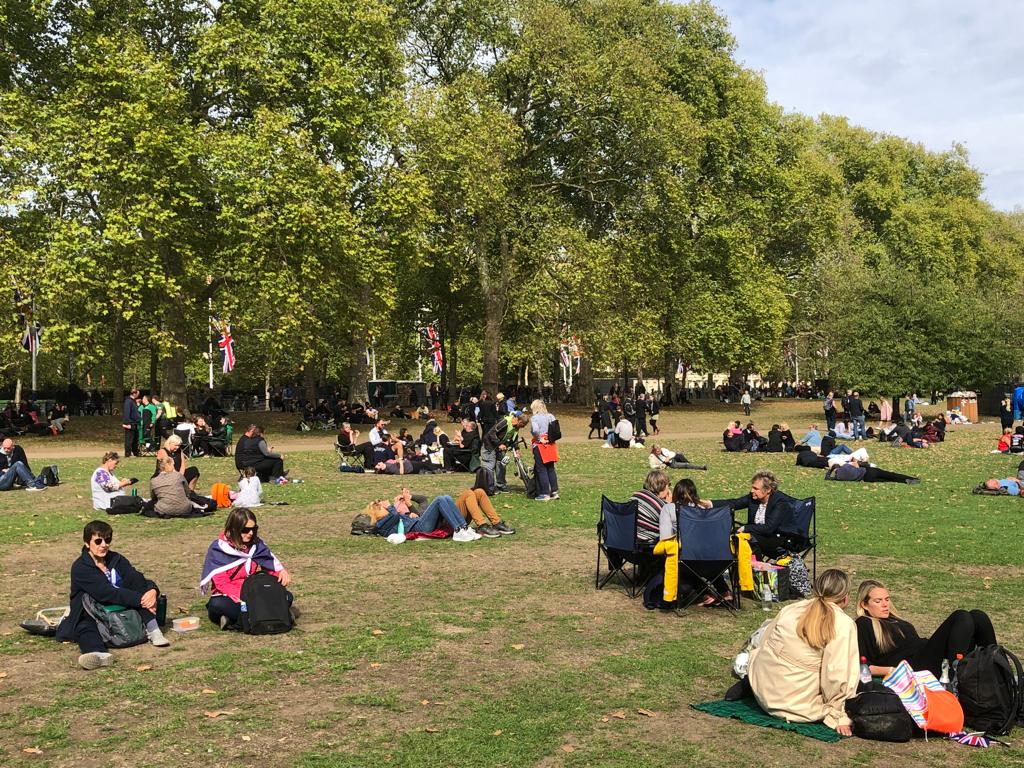
Queen Elizabeth’s idolatry doesn’t just happen in the UK. In the US, major broadcasters broadcasting in English and Spanish also broadcast live.
The number of people watching is incalculable, but “billions” are spoken.
The pool that captured the footage created a diagram of land and aerial views of various points of the regiment, such as the cranes suspended in the center of The Mall, now abandoned after farewell.

Children and II. Elizabeth
II. Perhaps an unexpected twist of all the pomp and circumstance that marked Elizabeth’s farewell was that people did not simply watch and create their own party with spontaneous tributes that became an impressive monument in Green Park next to Buckingham Palace.
Even Brazil was represented with a flag around a flower arrangement at the ceremony before Queen Elizabeth’s funeral.
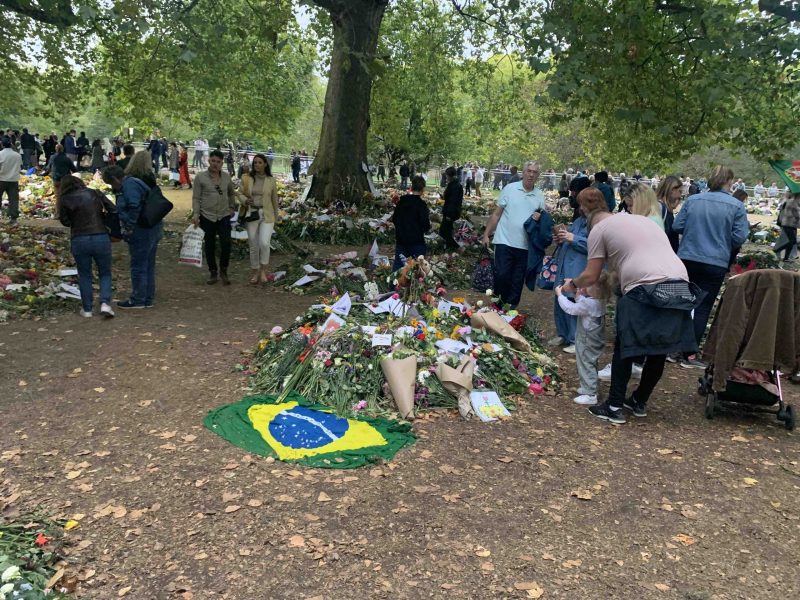
Among the flowers are many objects reminiscent of the queen, such as the famous Paddington classroom, which she played with in a Jubilee video, puppies, photographs and even a purse.
What stands out, however, is the amount of tributes made to children, some individually and some by schools, in groups.
Many children are taken to the place of worship of the image of the queen and the monarchy.
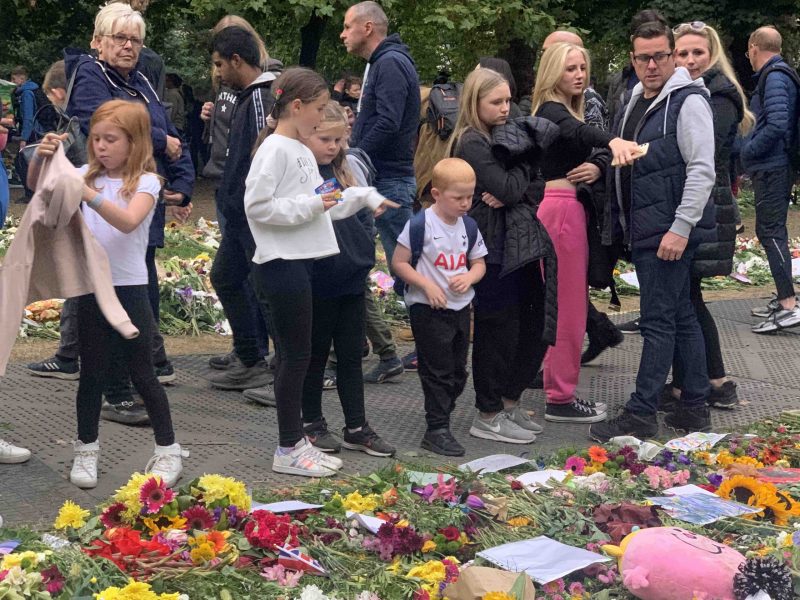
Depicting and seeing Queen Elizabeth became the theme of the week for British children at home or school.
Some drawings are not even remotely similar to the figure of the monarch, but are representations of the emotion encouraged by the elders.
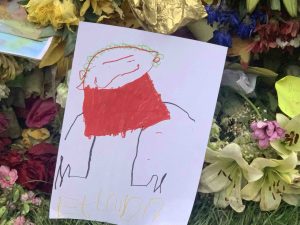
This is because the new generation of monarchs worshipers, or at least participated in Elizabeth’s farewell in some way, was a part of World War II. It must create people deeply hurt by Elizabeth’s reign.
Also Read | Flowers, teddy bears and the ‘superwoman’: see 25 tributes to Queen Elizabeth in central London
source: Noticias
